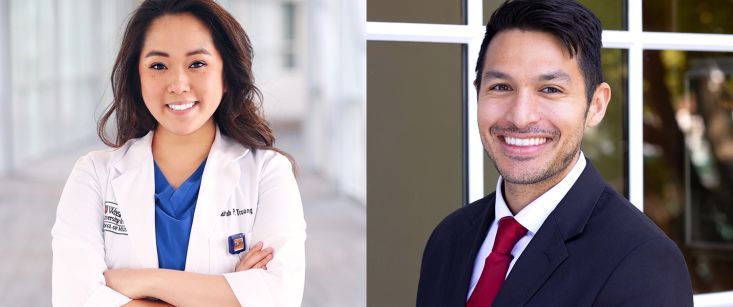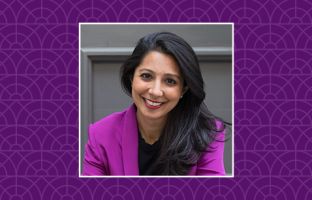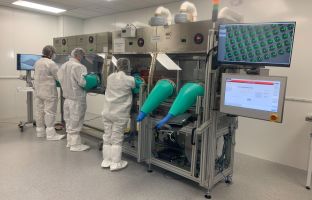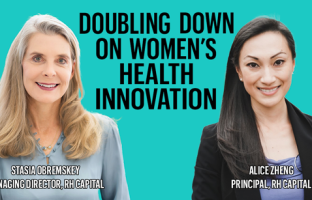
How has your time at HBS changed your views on health care?
HBS has greatly diversified my understanding of health care. Prior to HBS, I was familiar with health care primarily through the lens of early therapeutics development and clinical trials execution. I had a very limited grasp of digital health, payors and providers, hospital systems, and the evolving field of value-based care. I was able to develop this understanding through interactions with classmates–especially including the MD/MBAs–and taking classes such as Transforming Health Care Delivery with Ariel Stern. Additionally, I began developing hands-on experience of new areas within health care by starting my own venture, Willow Health, within the AI and digital health space. This has encouraged me to explore a wider range of health care segments including insurance companies, self-insured employers, telehealth providers, and decentralized clinical trial CROs.
What is your opinion on the current health care system? What would you change and why?
The current health care system is tremendously inequitable and fragmented. The health care system delivers innovation, ranging from cell therapies to remote patient monitoring and intervention solutions, to the privileged minority that have access due to care proximity (i.e being near an academic hub such as Boston) or socioeconomic status. Both variables are related, reinforcing how social determinants of health play such a significant role in health outcome disparities for different populations.
What industry of health care are you most interested in?
I am most interested in digital health and biotechnology. Although different in terms of business model, scientific discovery, and time-to-patients, I see these modalities as bookends of scalable human health care–ranging from disease prevention, detection, and management to curing diseases completely.
What experiences or faculty have had the most impact on you?
My favorite health care classes have been Investing in Life Sciences (Malcom Baker), Entrepreneurship in the Life Sciences (Satish Tadikonda), Transforming Health Care Delivery (Ariel Stern), and Innovating in Health Care (Regina Herzlinger). These courses exposed me to sufficient depth in financial, technology, and commercialization decision-making in the life sciences. They complemented the case method with applied learning through projects and written assignments–for example, a mock diligence report for a biotechnology company. Most importantly, the professors were phenomenal; they shared their passion and expertise inside the classroom and their mentorship outside of the classroom by mentoring students on IPs and startup projects.
What are your summer plans and where you are headed?
I am pursuing my startup, Willow Health, full-time this summer and am fortunate to begin the Blavatnik Life Science Fellowship in July.
How has your time at HBS changed your views on health care?
HBS has given me a more nuanced view of the health care industry and widened it from my previously provider-centric one. Now, I have a better understanding of the different players and stakeholders, and what policies and regulations might incentivize them to act a certain way.
What is your opinion on the current health care system? What would you change and why?
I have always had a very realistic view of the healthcare system, and what I learned at HBS has contributed to this sense of mixed pessimism regarding how much work there is still to be done, and optimism at the incredible minds that continue to enter the space. There is no one root cause of all the problems that we see, and like any chronic condition, is multifactorial in its etiology. My life will be dedicated to reducing the disparities and injustices that we see in healthcare, which will require enormous systems change.
What industry of health care are you most interested in?
I will be continuing my training as a medical doctor for the next decade or so, and am interested in remaining in the care delivery space. I think the physician has such a special relationship with the patient and is able to leverage that in leading change in the system as a whole.
What experiences or faculty have had the most impact on you?
I took nearly every healthcare course in the EC year and can confidently say each faculty member had such a large impact on my continued growth in understanding the healthcare system—and thus what I might be able to do to change it. It was so powerful to see that so many of our professors are women: Professor Herzlinger, Professor Dafny, and Professor Stern!
What are your summer plans and where you are headed?
I will be heading back to Washington University in St. Louis to finish up my MD and to apply to residency in internal medicine. I am interested in cardiovascular health and chronic diseases that disproportionately impact the un- and under-served in our communities. I’ll continue to do research in health policy and health care innovation, so please keep an eye out for me and cheer me on!







